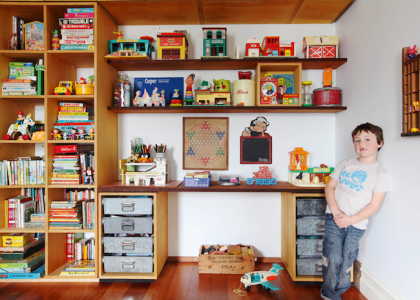Teaching Our Children to Value What They Have

When, in childhood, we have suffered a shortage, a lack of something, it is common that we want to do everything we can so that does not happen to our own children. So occasionally we make the mistake of giving them too much, too many presents “so they don’t lack anything.” However, we must help them to understand the fleeting value of material things and the value of what they have versus the value of what they want.
Maybe one day we are casually shopping and go into a store, and buy them a nice toy, and bring it home to them, excited (parents can be happier by just seeing their child’s look of surprise than the child who just got the toy), and the happy child does not even think about the importance of the gift.
They remain absorbed in what they were doing, probably something on their smartphone, tablet, or computer. This may disappoint us at first, and even make us sad, because we have worked hard to be able to buy them things, and it they don’t even know how to appreciate those things.
Of course, they have a room full of things to play with (although they barely use them), so it is difficult for them to pay attention to something new or to be thankful for the act of being given something. It is up to us, as adults, to teach them to recognize the sacrifices made for them and make sure they “earn” what they are given.
This does not mean that they have to go out and find a job when they are still young, but it does mean they need to be taught that in life, “nothing falls from the sky except for rain” and that in order to get what they want, they will have to work for it. This may sound a little strong for a school-age child to hear, however we are doing them a big favor if we get them to internalize this concept.
Many times, we don’t realize that our children are receiving everything without paying the least amount of attention to where it came from, how much it may have cost us to earn the money to buy it, how exactly it ended up in their hands, etc…

Even if we find ourselves in a good economic position, there is no need to allow them to get in the habit of having everything they want. We will never know when setbacks may happen and if our economic situation will be the same in the future. And if that happens, then how do we make our children understand that, although we’d like to, we can’t buy them a new toy, a new video game, or an upgrade to a new phone?
Teaching children how to value what they have
In order to make sure your little ones realize the price things have (not as a question of money, but rather the question of effort, or establishing priorities, for example), and to make sure they do not become a machine asking for something everyday, it is good to:
Give them responsibility in the household.
From the age of three and upward, a child can participate in household chores and take on some kind of responsibility, no matter how small. As their first responsibility, we won’t give them the task of organizing the glassware, or of cleaning the windows, but maybe, for example, they can bring their clean clothes to their bedroom.
Little by little, they can take on more tasks, appropriate for their age as they develop. But be careful, because the best way to reinforce this kind of behavior is not with material rewards, but rather with words and social recognition that makes them feel proud.
Don’t by them everything they ask for.
Ads on the television meant for kids are designed to make them want something. In fact, toys are presented as amazing gadgets that give them never-ending fun. If you are going to give them something they want, it is better to make them wait a little bit than to buy it right on the spot.
Take your time when “processing the request,” make sure it is something that they truly want and it is not just being asked for on a whim, because they saw the ad on TV or one of their friends at school has it. Don’t try to show your love for them by buying them things whenever they want. Do it as all parents should, that is to say, with time and affection.
Agree on a budget.
When kids start getting a little older and are able to become familiar with prices and the concept of money, we can start to talk to them about the prices of certain things they ask for. Let them help in deciding what is important to buy, and if you can (and they deserve it), give them a small allowance, so they can get used to managing their own limited funds.
In conclusion, don’t fall in the trap of saying “my children aren’t lacking anything,” because money and gifts are not what buy us love and happiness. Remember that “where there is too much of one thing, there is something else missing. What we have too much of cannot take the place of what we don’t have at all.”
This text is provided for informational purposes only and does not replace consultation with a professional. If in doubt, consult your specialist.








